UNSUNG HEROES
A ‘tiny patch of untouched forest’ in Lagos might be the key to conservation
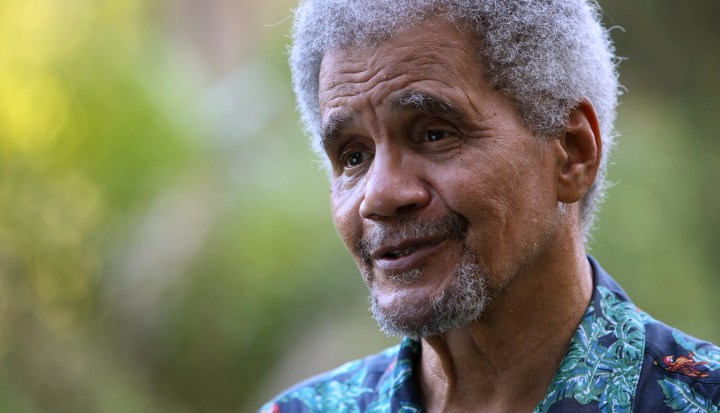
In the ever-expanding city of Lagos in Nigeria, musician and conservationist Desmond Majekodunmi holds his grip on 20ha of ‘a tiny patch of original untouched mangrove forest’, to conserve the natural environment and educate his community about the symbiotic relationship we have with nature.
‘Change is coming, and it’s either going to be forced on us – and that process will be extremely catastrophic – or the change can come voluntarily by us adopting a more loving nature. That’s the key,” says musician and conservationist Desmond Majekodunmi.
Majekodunmi is the founder of Lufasi Nature Park, a 20ha urban forest and animal shelter in the heart of bubbling Lagos, Nigeria. First established in 2016, the park is aimed at not only preserving indigenous natural habitats and wildlife in urban areas, but also using the area as a tool to educate urbanites on the climate crisis, conservation and sustainable urban farming models.
“The park’s motto is loving nature, but it’s like a two-angle expression – because in order to really be loving nature, you need to have a loving nature. And that’s fundamentally what we’re just trying to get across,” said Majekodunmi.
Majekodunmi told Daily Maverick that 30 years ago, before the rapid urban sprawl would envelop it, he started an agroforestry oil palm plantation in Lagos.
“When we started, it wasn’t in the urban area… it was on the outskirts of Lagos,” he explained. “But 30 years later, Lagos has now sort of shifted and absorbed it.”
Successful musician Majekodunmi decided to get into farming after spending three years working in production with Columbia Broadcasting Service in Kenya.
“Because the Kenyans were farming, you know,” he said, “And at that time you could actually ask a Nigerian child, where does milk come from? And the answer you would get is, ‘it comes from a tin.’ ”
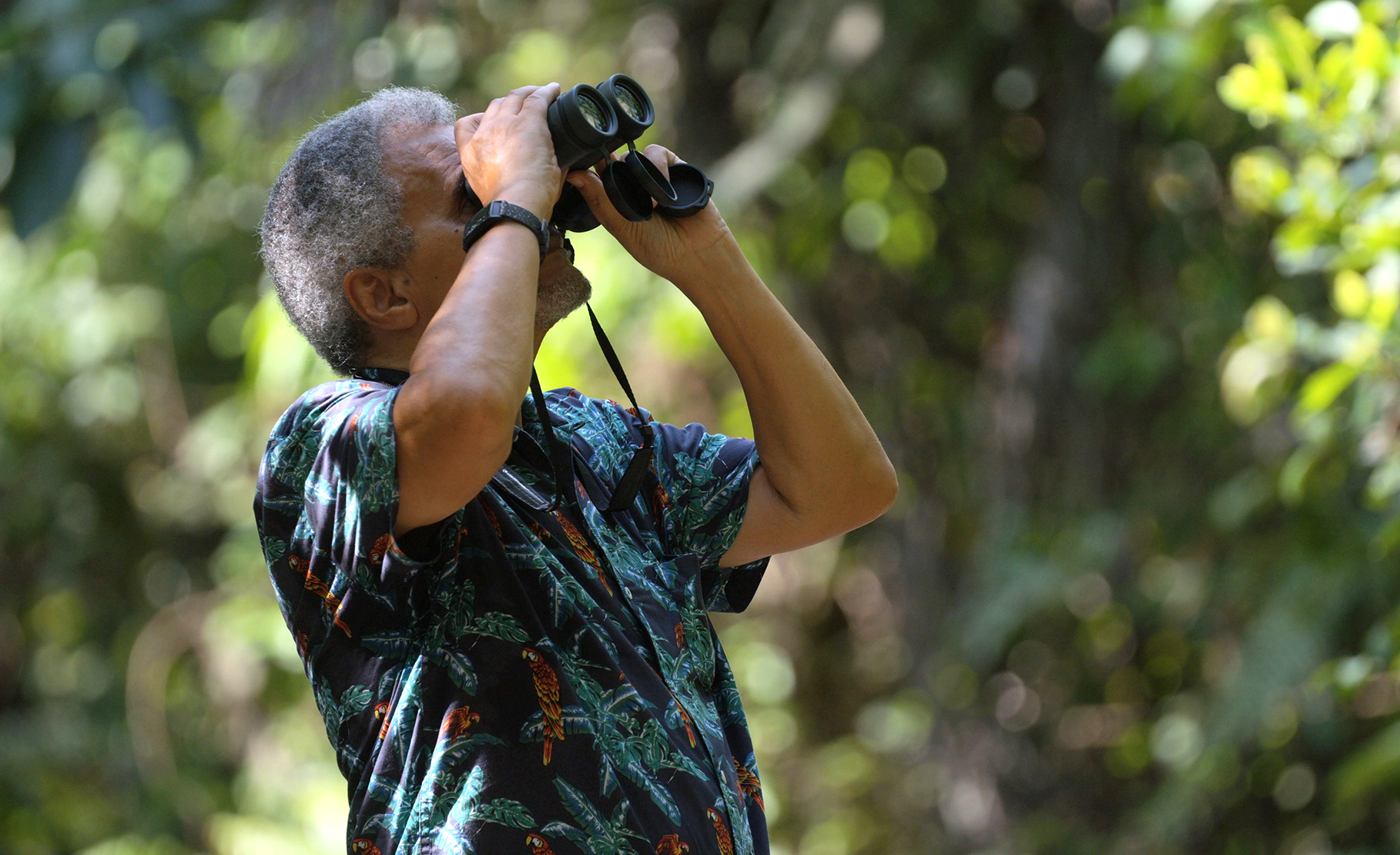
‘We need to change our attitudes, our pride has to be swallowed… because now we‘re expressing it against nature, and she is giving it back,’ said environmental activist Desmond Majekodunmi, who founded Lufasi Nature Park. (Photo: Wild Africa Fund)
Majekodunmi said that as Nigeria had long been an agricultural nation – producing palm oil and cocoa – he started farming when he got back from Kenya, and then eight years ago he converted a portion of his farm – now in the hub of Lagos and no longer on the outskirts – into an urban green park, to get Nigerians in the city more in touch with nature and farming.
“In order not to have [the farm] converted into real estate, I converted it into a park with the collaboration of the state government as a certified green space,” said Majekodunmi, explaining that the space was originally 50ha. He had to come to a compromise with the government and reduce it to 20ha as the state believed housing and development were more in the public interest than conservation.
“But we’re seeing some hopeful signs just in the last few months,” reflected Majekodunmi, “Obviously, it’s a huge challenge for a country [in which the] majority of revenue comes from fossil fuels. So there’s a massive, massive conflict.”
While Majekodunmi was left with a very small space, he said, “it’s ideal for getting the message across, which was what it was really all about”.
Promoting environmental awareness
Among the park’s 30 employees are several dedicated to the education department, who use the natural environment and wildlife to educate visitors and school children on biodiversity conservation, plastic pollution and climate change.
“We use that opportunity of the space to take people on tours deeper into the park, which now generates a tiny patch of pristine forest,” said Majekodunmi. “And in the process of doing that, we now do a little bit of awareness.”
For example, the indigenous mangrove forest (natural buffers) in the park helps to educate people on the need to preserve the natural environment as a protection from the impacts of climate change.
Read more in Daily Maverick: Marine Protected Areas are our insurance policy for a climate-uncertain future
“Mangrove is absolutely essential if you want to have any hope of eventually not being totally flooded out,” said Majekodunmi.
He explained that in Nigeria, schools were mandated to go on excursions, and this had helped make the park a popular educational destination.
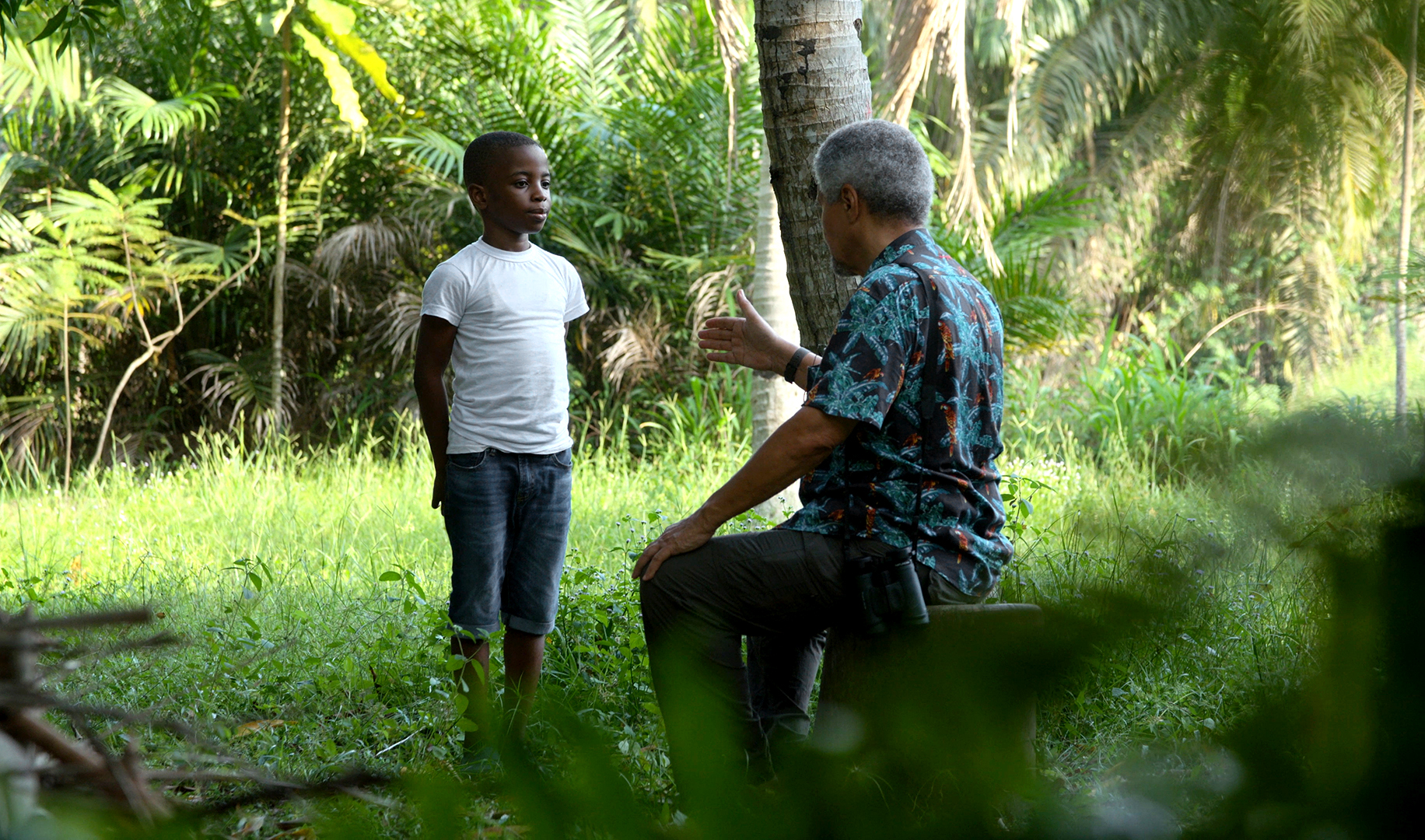
Part of Desmond Majekodunmi’s urban green park in Lagos, Nigeria is to create awareness about the importance of conservation. ‘Children fall in love with nature so naturally, their bodies just telling them, wow, we are part of this,’ said Majekodunmi. (Photo: Wild Africa Fund)
Along with playing soccer on a field, Majekodunmi says they try to use that opportunity to have educational workshops on the importance of conservation and gently introduce children to the concept of climate change.
“But they fall in love with nature so naturally, you know,” said a smiling Majekodunmi.
“Their bodies are just telling them, wow, we are part of this, we’re not apart – it’s a wonderful symbiosis.
“And it’s so easy to get them connected to nature, and then we just tell them we’ve got to look after nature, so she can look after us.”
Animal rescue and rehabilitation
The park has an animal sanctuary that serves as a rehabilitation centre for persecuted animals – such as African wild donkeys, West African Barb horses, Mona monkeys, helmeted guineafowl and pangolins – before they are reintegrated into the wild where possible.
“The birds more or less take care of themselves,” said Majekodunmi, “We have one of the last remnants of the hooded vulture in the whole of Lagos living here – they’ve been here for aeons, and they’re quite happy here.”
Urban farming
The park also runs an urban farming programme, where they work with the urban community to develop urban farming in intensive urban areas.
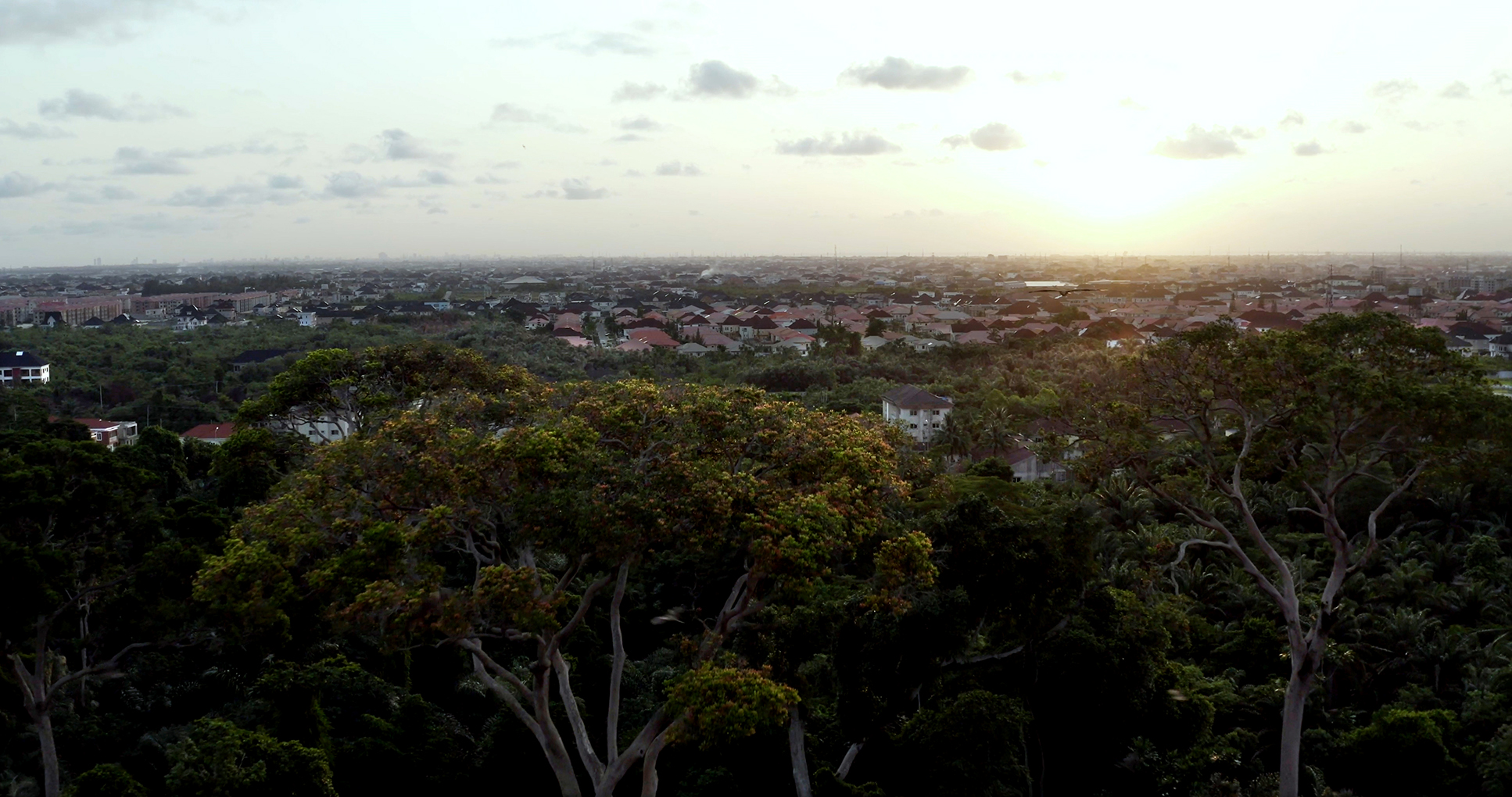
The urban sprawl of Lagos over the past few decades has seen developments absorb the natural habitat. (Photo: Wild Africa Fund)
“When the city extended, we had a couple of nearby villages become very confined, there’s no space for real farming,” said Majekodunmi, explaining they helped introduce vertical gardening, which replicates a normal organic garden, but is space efficient, as well as snail farming and aquaculture.
He explained that with a vertical garden, several shelves are attached to a frame – as many as can fit vertically in the area. On each shelf are several pots – they often use big plastic PET bottles with the tops cut off – and grow organic vegetables like okra, tomatoes, spinach and herbs. They then run hydroponic drops into each of the pots.
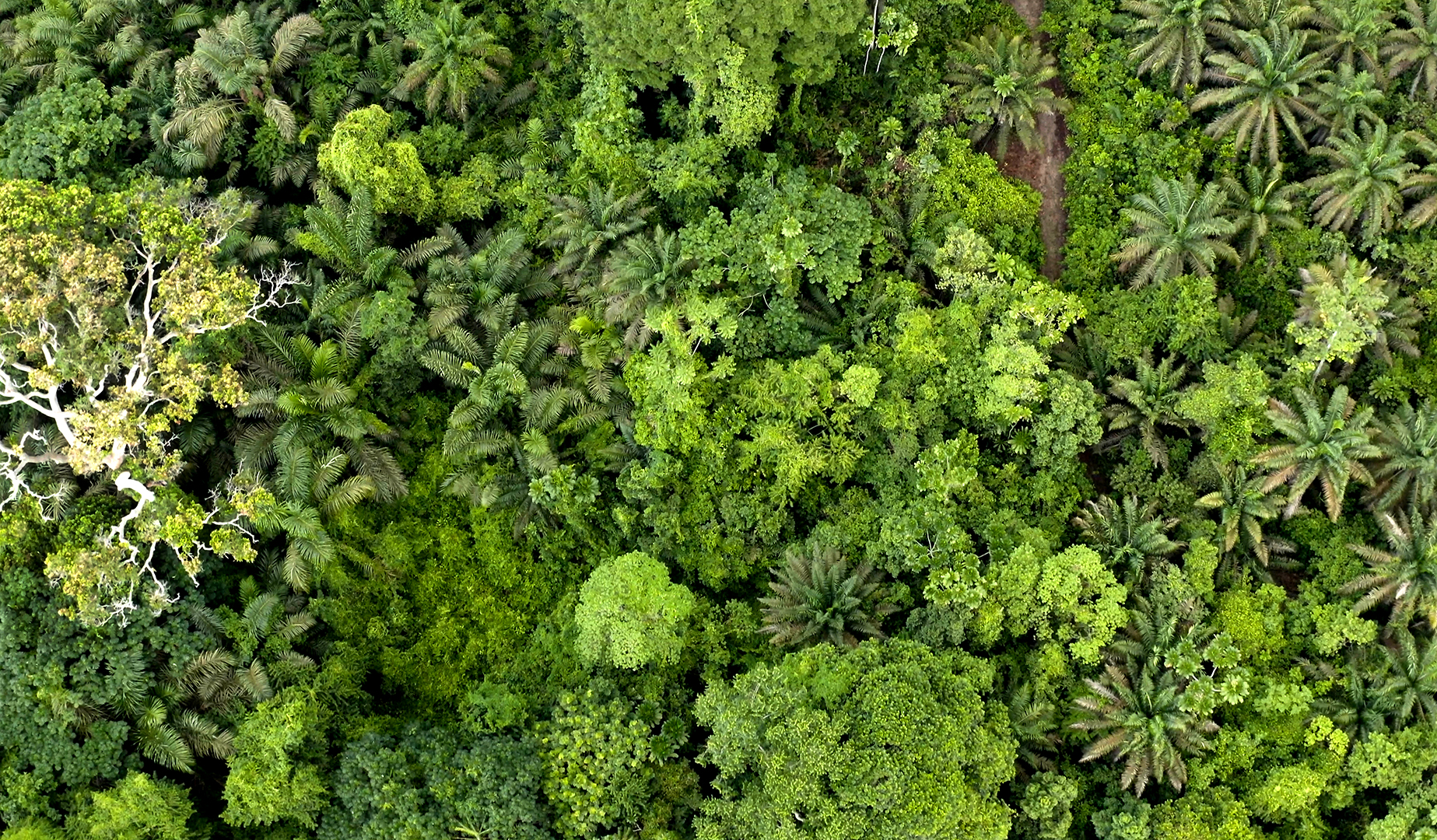
Desmond Majekodunmi says Nigeria used to be an agricultural nation, but because of the rapid urbanisation of Lagos, many children in the city are disconnected from the natural environment, which is why he created this urban green park. (Photo: Wild Africa Fund)
“Apart from being able to grow a bit of your own food, it brings a bit of green space into your space,” said Majekodunmi, “because Lagos is so dense, you know, you can go four kilometres and you won’t see a single plant.”
Remaining optimistic
Majekodunmi said that despite the urgency of the climate crisis and biodiversity loss, and the ever-expanding Lagos, he remains optimistic because finally the reality of the fundamental laws of nature had been brought into the spotlight.
“I’m not very smart at all, but I tell people here sometimes that I’ve never seen a coconut that I planted 30 years ago come out of the mango tree I planted 30 years ago.
“So it indicates to me that actually, what you sow is what you reap – that’s fundamental law! Action and reaction.
“And guess what? We need to change our attitudes, our greed, selfishness, wickedness. What we’ve been doing against each other for thousands of years – all kinds of wars and discrimination and anti-Semitism and apartheid – is now being expressed against nature. And she is giving it back.” DM



















 Become an Insider
Become an Insider
Comments - Please login in order to comment.